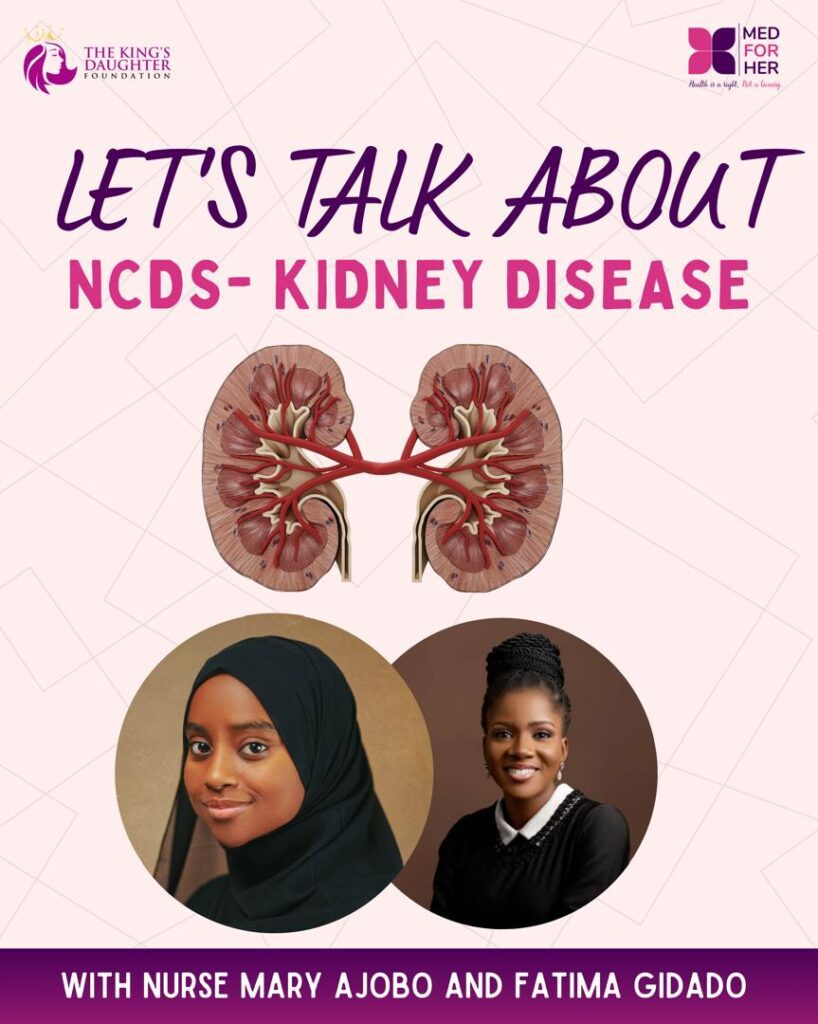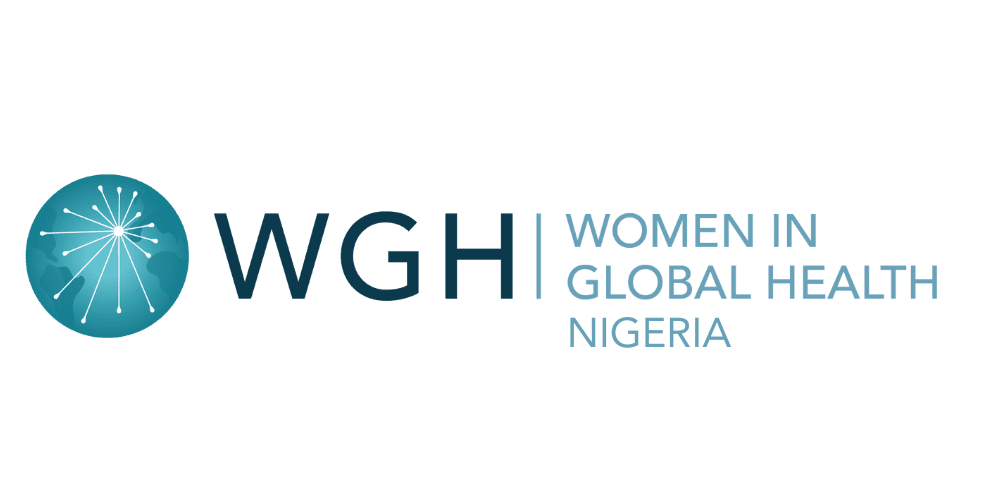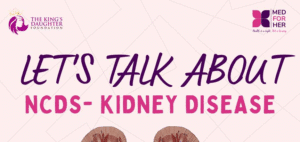When The Body Speaks Too Late: Advocates Raise Alarm On Women’s Kidney, NCD Crisis
It was a scene that spoke louder than words. A mother sat anxiously in a hospital waiting area, wringing her hands as her daughter fought for her life in the dialysis room. “She doesn’t smoke, she doesn’t drink, so how did this happen?” she whispered in disbelief.
Her pain mirrors that of countless Nigerian families caught off guard by kidney disease and other Non-Communicable Diseases (NCDs) that remain hidden until it is too late.
Health advocates are now warning that without urgent investment in awareness, prevention, and early screening, more women will continue to die silently.
Ajobo Mary Oluwaseun, Founder of The King’s Daughter Foundation, and Fatima Gidado, Founder of MedForHer, are at the forefront of this campaign.
They insist that kidney disease is not always linked to lifestyle choices but often stems from undetected conditions like hypertension and diabetes that quietly destroy vital organs over time.

“As a renal nurse, I hear this too often,” Oluwaseun said. “By the time many women present at hospitals, their kidneys have already failed. That is why prevention and early screening are critical.”
In one Ibadan outreach, their team screened 25 women and found nine with dangerously high blood pressure most of whom had no idea of their condition.
“For many women, healthcare is a luxury, not a right,” Gidado explained. “They are too busy with survival, and some turn to unregulated herbal remedies that worsen their health instead of improving it.”
The two advocates stress that social media campaigns alone cannot reach market women, rural dwellers, and those without internet access. What Nigeria needs, they say, is offline, community-based education, government-backed preventive care, and more mobile screening programs.
“No woman should suffer or die simply because she did not know,” Oluwaseun and Gidado emphasized, calling on policymakers, NGOs, and health workers to collaborate in placing prevention at the heart of women’s health.

